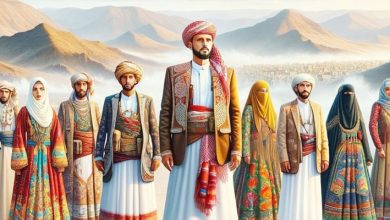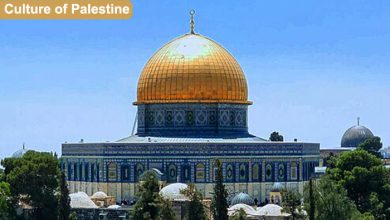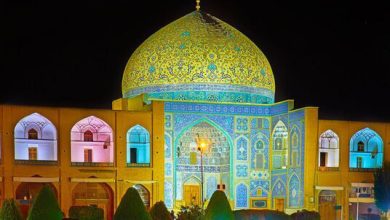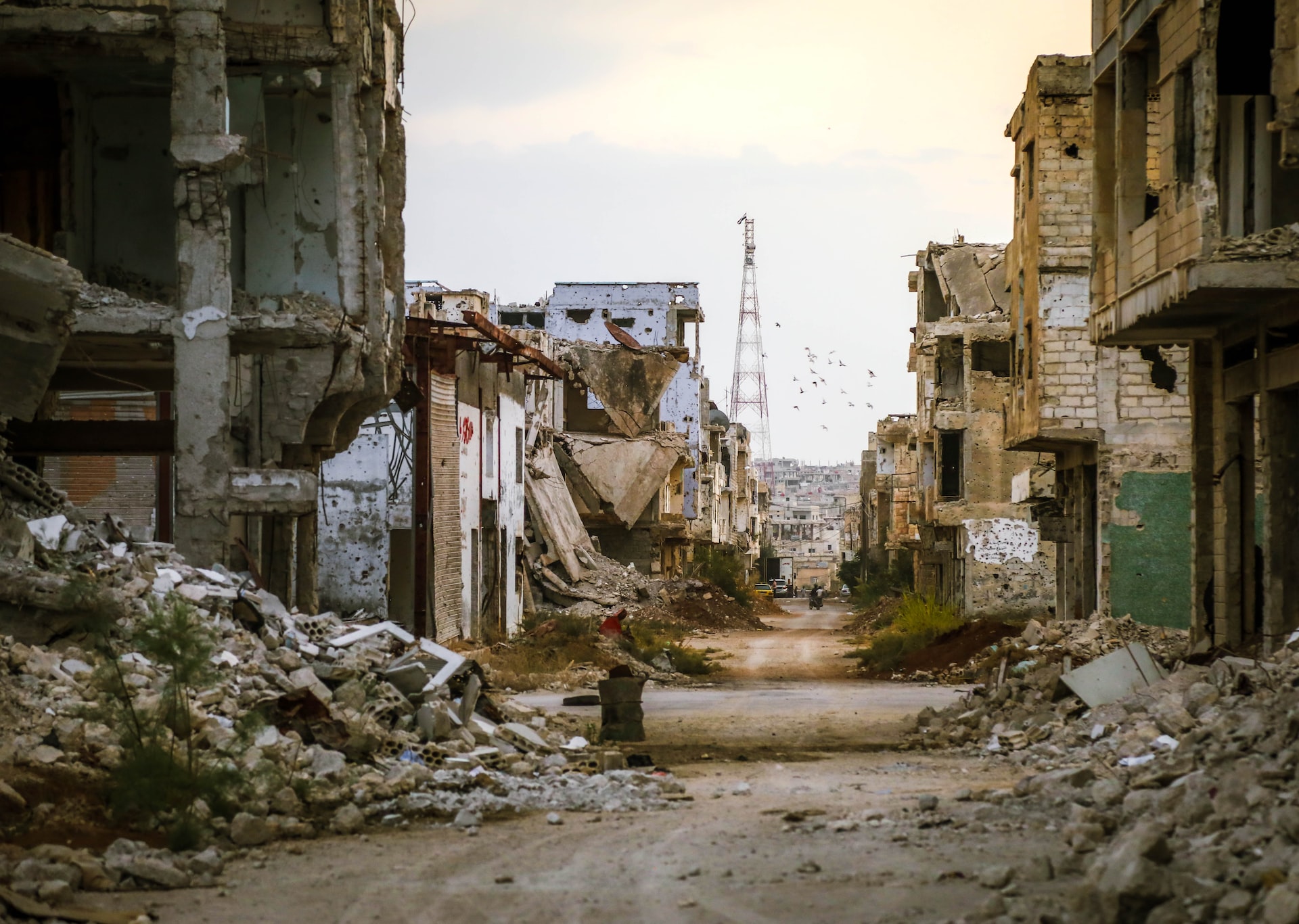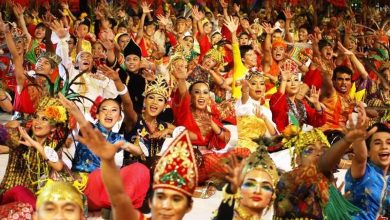Culture of India with General Information
Total Size:
3,287,590 square km
Capital:
New Delhi
Region:
Asia
Low Point:
the Indian Ocean 0 m
High Point:
Kanchenjunga 8,598 m
Climate:
Temperate in the north, varies from tropical monsoon in south
Major Cities:
New Dehli, Mumbai, Kolkata, Chennai, Bangalore
Famous Places:
TajMajal, Lotus Temple, Jama Masjid, Qutub Minar, Mysore Palace, Ajanta Caves, The Red Fort, Lake Palace, Goa beaches, Golden Temple in Amritsar, India Gate, Ganges River, Virupaksha Temple, Kanha National Park,
Currency:
Indian rupee (INR)
Type of Government:
Federal republic
Independence:
15 August 1947
Divisions:
29 states
General Overview of India
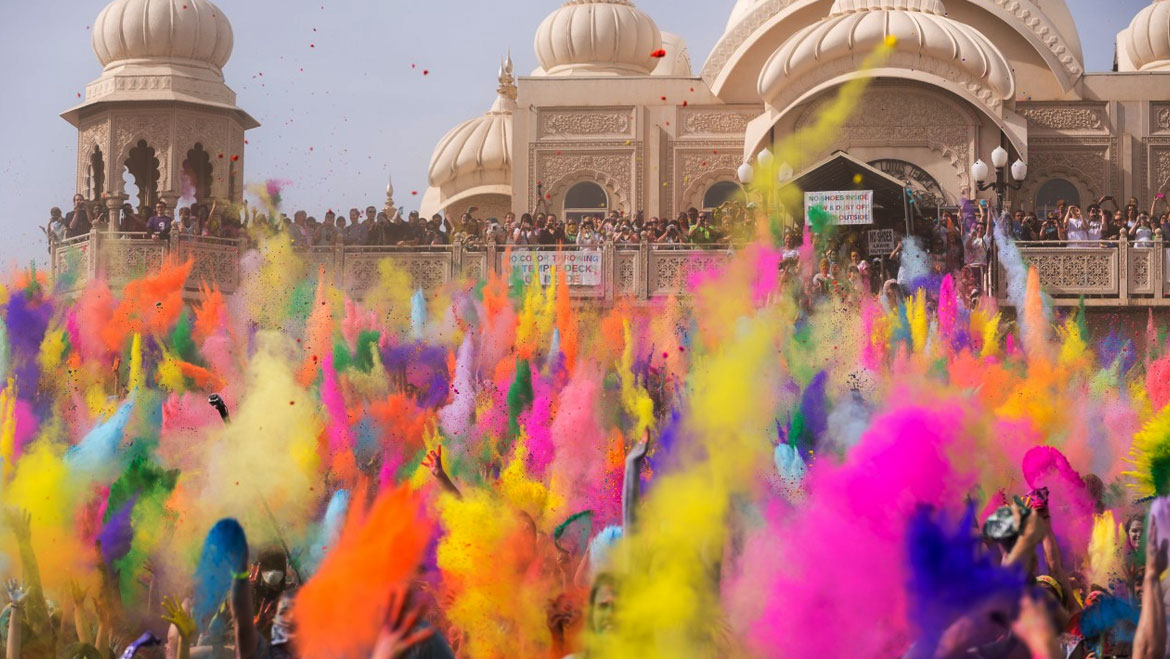
India is a land of deep-rooted culture and traditions, which have been passed down through generations. As such, it is no surprise that the culture of India is incredibly diverse, with a plethora of customs, beliefs, practices, and values. In this blog, we will explore the history, core values, and contemporary expressions of Indian culture. We will delve into the various aspects of Indian cultures, such as the arts, music, cuisine, religious beliefs, language, festivals, traditional clothing, social etiquette, roles, status, and gender relations. Additionally, we will discuss the impact of globalization, nature, technology, architecture, colonialism, migration, and modernization on Indian culture. Moreover, we will examine the influence of popular culture, the media, education, digitalization, and global culture on Indian culture. Finally, we will look at the role of social media, the preservation of traditional values in the modern world, and the promotion of Indian culture in the digital age.
History of Indian Culture
The history of Indian culture is one that is rich and varied. It spans thousands of years and has been influenced by various religions, languages, and dynasties. Indian culture is a reflection of the diverse and complex history of the Indian subcontinent. It encompasses a wide range of beliefs, customs, traditions, languages, and art forms. From the ancient Indus Valley Civilization to the modern day, Indian culture has deeply affected the world. Indian culture has been shaped by a variety of religions, including Hinduism, Buddhism, Jainism, Sikhism, and Islam. It is also influenced by the ancient literature, art, and architecture of India. Indian culture is known for its spiritualism, philosophy, and creativity. It has also been influenced by modern-day technological advances, which have integrated into traditional Indian culture. Indian culture is a combination of ancient and modern elements, creating a unique and vibrant culture that is still evolving today.
Core Values of Indian Culture
India is a country with a rich cultural heritage that dates back centuries. Its culture is deeply rooted in its spiritual, moral, and ethical values which are the core of Indian culture. These values include respect for elders, compassion and kindness, honesty, humility, truthfulness, non-violence, and tolerance. These values are essential in cultivating a strong sense of community and helping people live harmoniously with each other. As India continues to modernize and evolve, these values remain a cornerstone of its culture and its people.
Arts and Music in Indian Culture
Indian culture has a long-standing history of Arts and Music, both of which are integral aspects of the country’s cultural identity. Music has been an integral part of Indian culture for centuries and can be found in many different forms from traditional folk music to classical music. Indian Arts are also highly esteemed and can be seen in famous paintings, sculptures, and architecture. Indian Arts and Music are both highly valued and appreciated throughout the country, and continue to be celebrated in many different ways. The blending of cultures has also resulted in the development of new styles, such as the fusion of Indian and Western musical styles. Arts and Music in India continue to be an important part of the culture and are celebrated by many.
Indian Cuisine
Indian cuisine is an incredibly diverse and flavorful culinary experience. With a rich cultural history spanning centuries, Indian food is an integral part of the nation’s identity. The use of spices, herbs, and other ingredients to create unique and complex flavors is one of the hallmarks of Indian cuisine. Dishes vary from region to region, as each area has its own distinct flavor profile, making it a truly special and varied experience. From the popular dishes of the north such as tandoori chicken to the traditional curries of the south to the street food of the west, Indian cuisine has something for everyone. Whether you’re looking for something spicy, mild, sweet, or savory, Indian cuisine is sure to satisfy you.
Religious Beliefs in Indian Culture
Indian culture is deeply rooted in religious beliefs and practices. Hinduism, Buddhism, Jainism, Sikhism, and other religions have been integral to Indian culture since ancient times. Religious beliefs have had a profound influence on the social, economic, and political aspects of Indian life. For example, Hindu beliefs and practices such as yoga and meditation are popular around the world. Additionally, Hindu festivals such as Diwali and Holi are renowned for their vibrant celebration of life and culture.
In addition to Hinduism, other religions have also made significant contributions to Indian culture. Buddhism, for example, has provided spiritual teachings and has been a source of inspiration for many artistic works. Jainism has shaped Indian philosophy and ethics, while Sikhism has contributed to Indian politics and social reform.
Overall, religious beliefs and practices have been an integral part of Indian culture for centuries. They have helped shape the cultural and spiritual identity of the country and continue to influence it today.
Language in Indian Culture
The Indian culture is incredibly rich in language diversity. With over 780 languages spoken across the country, India is one of the most linguistically diverse countries in the world. This linguistic wealth has been integral to Indian culture since ancient times. Language is used to convey complex ideas, feelings, and experiences, making it a powerful tool for communication and expression. As such, language is woven into the fabric of Indian culture, creating a unique and multifaceted cultural identity. The diversity of languages in India also contributes to the country’s rich literary tradition, with many of the most famous works of literature written in the various languages that are spoken in the country. Language is also a source of pride for many Indians, as it helps to shape the cultural identity of the nation.
Festivals in Indian Culture
Indian culture is enriched with numerous festivals and celebrations. These festivals represent the culture and traditions of the country. From North to South, each region has its own unique set of festivals. The most widely celebrated festivals in India are Diwali, Holi, Dussehra, Pongal, Durga Puja, RakshaBandhan, and Lohri. These festivals are celebrated with much enthusiasm and joy by people of all ages. During these festivities, people dress up in traditional attire, exchange gifts, prepare special delicacies and sweets, and light up their homes with diyas and other decorations. The celebrations also bring families and communities together and help to promote brotherhood and harmony. In short, Indian festivals not only bring immense joy and happiness but also represent the culture and traditions of this vibrant country.
Significance of Indian Culture
Indian culture is an integral part of the identity of the country. It is a rich heritage that has been passed down from generation to generation and has served as an integral part of Indian life for centuries. Indian culture includes a variety of different customs and beliefs, from religious customs such as Hinduism, Buddhism, and Jainism, to traditional Indian cuisine and clothing. Indian culture also includes a range of art forms, from classical Indian dance to modern Indian literature.
The significance of Indian culture lies in its ability to unite people from all backgrounds and create a sense of unity and belonging. Indian culture has a long history of promoting peace and harmony, as well as providing a sense of identity and belonging to its citizens. As a result, it is seen as an important part of the country’s national identity and is celebrated throughout the country. Indian culture also provides education and employment opportunities through its vast cultural resources and traditions.
In conclusion, Indian culture is an essential part of the country’s identity and has a significant impact on the lives of its citizens. It is a source of pride, unity, and belonging, and it provides education, employment, and cultural enrichment. Indian culture is a vital part of the nation’s fabric and should be celebrated and protected for generations to come.
Traditional Clothing
Indian culture is characterized by its vibrant traditional clothing. The traditional attire of India is an integral part of the vibrant culture of the country and has been a source of admiration and appreciation for many. Indian clothing is known to be a blend of different fabrics, textures, and colors and is also known for its intricate designs and embroidery. Many of these traditional garments are still seen around the country, especially during festivals and special occasions. The traditional attire of India is a representation of its culture, history, and its rich heritage. It is the perfect way to express the individuality of the wearer, as well as the country’s vibrant culture.
Social Etiquette in Indian Culture
Social etiquette is an important part of Indian culture. It is a set of unwritten rules that govern the way people interact with each other. Social etiquette in India is based on respect, politeness, and consideration for others. It is important to show respect to elders, as well as strangers. Good manners also include saying “please” and “thank you”, using appropriate titles when addressing people, and using polite language. Additionally, physical contact with strangers should be avoided, as well as profanity, unless in a joking manner. In India, it is also important to dress modestly and to understand the cultural norms and customs of the region. Following social etiquette is an important part of maintaining harmony and respect in Indian culture.
Roles, Status, and Gender Relations in Indian Culture
Indian culture has a long history of defining roles, status, and gender relations within its society. These roles have been traditionally established by the caste system and are structured around notions of hierarchy and status. In Indian culture, men are generally seen as the heads of households and have traditionally held more power in society. Women, on the other hand, have traditionally been viewed as second-class citizens and are often excluded from decision-making processes. However, the status of women has been slowly improving in recent years, with laws such as the Right to Education Act, Women’s Reservation Bill, and the Protection of Women from Domestic Violence Act, providing them with more opportunities and rights. It is important to recognize the changing dynamics of gender roles in Indian culture and to support and promote the rights of women in order to create a more equitable society.
Globalization’s Impact on Indian Culture
The effects of globalization on Indian culture have been profound, particularly in the realm of economics and politics. Globalization has increased the rate of economic growth and opened up markets to international competition, allowing Indian companies to expand their presence on the global stage. At the same time, it has also created new challenges for the preservation of traditional Indian culture. Globalization has exposed Indian citizens to new ideas and values, which have impacted religious, familial, and social practices. As a result, traditional Indian culture has been transformed in many ways, such as increased consumerism, the introduction of new religious practices, and a decrease in the importance of family and community ties. The Indian government has taken steps to ensure that traditional values are respected, but the rapid pace of globalization has made it difficult to keep up with the changes.
Role of Nature in Indian Culture
India is a country steeped in culture and tradition, with nature playing an important role in shaping the lives of its people. In Indian culture, nature is seen as a source of divine energy and is celebrated in a variety of ways. From Hinduism, which sees the whole world as a manifestation of the divine, to Jainism, which advocates a strict reverence for all living creatures, Indians have a deep appreciation for the natural world. This is reflected in their rituals and beliefs as well as their traditions and art forms. For example, in Hinduism, the Vedic gods are often depicted as being part of the natural world, and animals such as cows, bulls, and snakes are often venerated in temples. Additionally, festivals such as Holi, Diwali, and Pongal celebrate the changing seasons and the bounty of nature. In Indian culture, nature is not only seen as a source of beauty but also as a reminder of the cyclical nature of life. Nature is a reminder to live in harmony with the environment and to respect the interconnectedness of all life.
Health and Wellness in Indian Culture
Indian culture has long placed a strong emphasis on health and wellness. From ancient Vedic and Ayurvedic practices to modern yoga, meditation, and dietary guidelines, the Indian population has adopted holistic living for centuries. This includes the use of natural remedies to heal the body and mind, as well as focusing on physical health through diet, exercise, and relaxation. Indians also recognize the importance of balance in emotional and spiritual well-being. Through connecting with nature, engaging in meaningful relationships, and taking time for self-care, Indians strive to achieve a healthy balance in their lives. These ancient practices remain relevant today and have become increasingly popular in the West as people look to India for alternative health and wellness solutions.
Impact of Technology on Indian Culture
In recent years, the impact of technology on Indian culture has been profound. With the advent of mobile phones and the internet, Indian culture has seen tremendous changes. From communication to communication of ideas, from financial and banking services to entertainment and lifestyle, technology has revolutionized the way Indians interact with each other and with the rest of the world.
Moreover, the introduction of new technologies like artificial intelligence and blockchain has opened up a plethora of new opportunities for Indians to explore. From automated farming to medical diagnostics and drug discovery, the world of technology is revolutionizing the way Indians live, work, and think.
Apart from this, technology has also influenced the way Indians think and express themselves. Social media platforms have allowed Indians to share their opinion, discuss different topics, and engage in meaningful conversations. From health, education, and politics, to art and culture, technology has enabled Indians to become active participants in the digital information age.
All in all, technology has had a profound influence on Indian culture and has opened up new avenues for exploration and growth. As more and more people become aware of the potential of technology, it is likely that India’s cultural landscape will continue to change in the years to come.
Symbols of Indian Culture
India is a country with a rich and diverse culture that has been around for thousands of years. Throughout history, symbols have been used to represent various aspects of Indian culture. Some of the most iconic symbols in India include the Ganesha, the Taj Mahal, and the lotus flower. The Ganesha is a popular Hindu deity that symbolizes success and prosperity. The Taj Mahal is a beautiful mausoleum located in Agra, India, that symbolizes love and devotion. The lotus flower is a representation of enlightenment and purity. All of these symbols have been important to India for centuries and represent the culture’s values and beliefs.
Indian Culture Architecture
The architecture of India has a long and rich history that goes back thousands of years. It is one of the oldest surviving architectural traditions in the world. Indian architecture has been shaped by its unique culture and reflects the values and beliefs of the Indian people. Indian architecture is characterized by its sophisticated use of geometry, its use of natural materials, its focus on environmental sustainability, and its strong sense of aesthetics. Indian architecture is known for its elaborate temples, palaces, forts, and monuments, which are often adorned with intricate carvings and sculptures. Indian architecture has also been heavily influenced by ancient religions such as Hinduism, Buddhism, and Jainism, which often employ unique and elaborate temple architecture that is designed to reflect the spiritual nature of the religion. In modern times, Indian architecture has been influenced by the influence of Western styles, such as the use of steel and concrete in the construction of modern buildings. Indian architecture continues to evolve and develop, reflecting the changing values and beliefs of Indian society.
Impact of Colonialism on Indian Culture
Colonialism had a profound effect on Indian culture which can still be felt today. The British Raj, a period of British rule in India between 1858 and 1947, saw India’s culture, economy, and politics change drastically. This included the introduction of a new language, English, as well as new laws and customs. The British also had a strong influence on Indian education and literature, introducing new concepts on an unprecedented scale. Indian architecture was also affected, with the British introducing a new style of architecture that blended traditional Indian styles with western influences. Changes in religion and caste systems were also present, with the British introducing Christianity and the caste system becoming more rigid. Ultimately, the effects of colonialism on Indian culture cannot be understated. It had a large impact on the way Indians think and act and continues to shape Indian culture even today.
Impact of Migration on Indian Culture
Migration has had a lasting impact on the culture of India. As people from different parts of the world have settled in India, they have brought with them their own traditions, customs, languages, and beliefs. This has created a unique and diverse cultural landscape in India that is a combination of both traditional and modern elements. Migration has also been instrumental in fostering economic development in India and creating new job opportunities for people. Migration has also helped to promote cultural exchange among different communities, which has further enriched the culture of India. Thus, migration has been one of the major contributors to the vibrant and diverse culture of India.
Regional Variations in Indian Culture
India is a country with rich cultural diversity. Each region of the country has its own unique culture that is greatly influenced by its geography and history. Over the centuries, the people of India have developed distinct languages, religions, music, dance, and art forms that reflect their various local customs. Even though each region has its own traditions, there are some common elements that are shared across the country. For example, the worship of various gods and goddesses, the value of hospitality, the use of spices in cooking, and the importance of family are a few of the shared traits that are found throughout India. Regional variations in culture can be seen in everything from the food that is eaten to the clothes that are worn, providing a fascinating insight into the history and values of the people who live there.
Impacts of Modernization on Indian Culture
Modernization has had a considerable impact on Indian culture. As India has seen rapid economic growth and modernization in recent decades, traditional cultural practices have been altered in many ways. The introduction of new technology and consumerism has led to a shift away from traditional values in favor of a more globalized lifestyle. Social media and digital connectivity have exposed India to foreign cultures, while simultaneously promoting Indian culture on a global scale.
Modernization has also led to a greater emphasis on education and professional development. With increased access to technology, more people are able to pursue higher education and professional training, leading to a shift in the traditional Indian social hierarchy. Additionally, increased access to information has helped to foster a more informed and empowered society.
Despite the many changes that modernization has brought, many elements of Indian culture remain unchanged. Traditional religious beliefs, art, music, and literature still remain integral parts of Indian culture. Additionally, India’s traditional social structure and values are still largely maintained.
Overall, modernization has had a significant impact on Indian culture. Though it has brought about many changes, India’s traditional values, beliefs, and culture continue to remain strong.
Continuity & Change in Indian Culture
India has a long and rich history of culture and traditions that have been passed down from generation to generation, and as a result, the culture of India has been both in a state of continuity and change over time. Indian culture is known for its diversity, which is a result of its long history and its ability to absorb different external influences. While some aspects of Indian culture have remained unchanged for centuries, such as the importance of family and caste, other aspects have changed to accommodate modern values and beliefs. India has seen a growth in cultural diversity due to the influx of modern western culture, as well as the growth of other religions. This has caused changes in tradition, as well as the introduction of new technologies, which have had an effect on the way people live their lives. However, despite the changes, India still retains its core values and customs, making it a unique and vibrant culture that continues to evolve.
Impacts of Social Media on Indian Culture
Social media has had a considerable impact on Indian culture, both positive and negative. On the one hand, it has enabled people to connect and share information more quickly and conveniently than ever before. It has empowered individuals to express their opinions, form networks, and broaden their horizons. Social media has also provided a platform for people to celebrate their culture and heritage, by sharing pictures, stories, and songs.
On the other hand, social media has had a deleterious effect on Indian culture. It has contributed to the propagation of negative stereotypes and has enabled the spread of misinformation and fake news. Additionally, it has worsened the already severe gender gap in India, with women facing greater scrutiny and criticism online.
In conclusion, social media has had both a positive and a negative impact on Indian culture. It has enabled people to express themselves and connect with each other more quickly and easily, while also amplifying certain negative aspects of the culture. In order to maximize the positive potential of social media, it is important to ensure that it is used in a responsible way.
Impact of Education on Indian Culture
India has a rich, ancient cultural heritage that has been shaped by its education system over the years. Education plays an important role in preserving and promoting India’s cultural values and customs. Education fosters a sense of national identity, allowing individuals to feel a part of the larger society. It is also essential for the development of a strong, unified nation, as it provides the necessary knowledge and skills for citizens to contribute to the collective good. Education serves to bridge the divide between rural and urban populations, empowering those from all walks of life to strive for a better future. By teaching people about their cultural heritage, education enables them to develop a sense of pride and respect for their traditions, while also encouraging them to seek out new experiences and opportunities. Education also provides an opportunity to explore different religions, art forms, and customs, allowing individuals to broaden their horizons and gain a better understanding of the world around them. Ultimately, education is essential for preserving and promoting Indian culture and is one of the cornerstones of society.
Influence of Media on Indian Culture
The media has had a significant effect on Indian culture. It has exposed Indians to a world of new ideas, trends, and customs. From fashion and music to cuisine, the media has allowed Indians to explore a variety of cultures and experiences. It has also allowed them to connect with people from different parts of the world. This has given Indian culture a more global outlook. In addition to this, the media has also allowed Indians to gain more access to knowledge and information, which has enabled them to be more informed and educated. Overall, the media has had a strong influence on the culture of India, enabling it to evolve and grow in new directions.
Impact of Digitalization on Indian Culture
Digitalization has had an immense impact on Indian culture, bringing with it a range of innovations that have revolutionized the way we interact and engage with one another. It has allowed us all to stay connected with friends & family, no matter where we are in the world. It has also provided us with access to a range of digital media and entertainment, including movies, music, sports, and news. All of these elements have had a significant impact on Indian culture.
Digitalization has changed the way we communicate with each other, both online and offline. People are now more likely to interact and engage with each other through social media platforms like Facebook, Twitter, and Instagram, rather than through face-to-face conversations. This has had a major effect on how we perceive and interact with each other.
Digitalization has also had a positive influence on the way we learn. With the increasing availability of online learning resources and platforms, knowledge is now more accessible than ever before. It has made it easier for students to access educational materials, giving them the opportunity to learn from experts from around the world.
Overall, digitalization has had a significant impact on Indian culture, with the range of innovations it has brought with it having a profound effect on the way we communicate, interact, and learn.
Impact of Popular Culture on Indian Culture
Popular culture has had a major impact on Indian culture. Popular culture can be defined as the culture of the people, which is influenced by the media, technology, and societal trends. In India, popular culture has had an influence on everything from fashion to music to cuisine. For example, the Indian society has been exposed to Western fashion trends through the media and this has had a significant influence on how people dress in India. Additionally, Indian cuisine has been influenced by popular culture, with dishes like pizza and burgers becoming common and popular. Indian music has also seen a shift in recent years, with a rise in the popularity of western music and the emergence of new genres such as EDM. Finally, the use of technology has had a major impact on the way people communicate and interact with one another in India. Technology has made it easier for people to stay connected and access information in real-time. Overall, popular culture has had a major impact on Indian culture, making it more diverse and global.
Impact of Social Media on Indian Culture
The influence of social media on Indian culture has been tremendous in recent years. With the proliferation of social media platforms like Facebook, Twitter, and Instagram, traditional Indian culture is facing a rapid transformation. People now have access to global trends and practices, and the culture of the country is becoming increasingly diverse and cosmopolitan. Indian youth are especially susceptible to the influence of global trends and practices, and as a result, social media has had a significant impact on the culture of the country. It has allowed people to find and connect with people from all over the world, which has had a major impact on traditional values and beliefs. In addition, the widespread adoption of digital technology has enabled more people to access information, leading to greater awareness and knowledge of different cultures and customs. Social media has also enabled people to express their opinions and views more easily, creating a platform for dialogue and discussion. All these changes in Indian culture have made it more dynamic and vibrant.
Influence of Global Culture on Indian Culture
Global culture has a great influence on Indian culture. In today’s world of rapid globalization, Indian culture is being shaped by a variety of international influences, such as modern fashion, technology, and international cuisine. These influences have had a positive effect on Indian culture, with more people embracing modern lifestyles, while still preserving the traditional aspects of their culture. Technology, in particular, is playing a major role in India’s culture today, with many people using the Internet, social media, and mobile phones to communicate with one another and stay in touch with the world. This has led to a greater exchange of ideas and cultures, allowing India to continue to evolve and develop its own unique cultural identity.
The Influence of Indian Culture around the World
India has a long history of culture and civilization that has greatly impacted the world. For centuries, India has shared its culture with other countries through trade, exploration, and migration. From food and fashion to art and architecture, Indian culture has had a profound influence on many aspects of modern life.
Indian cuisine is the most popular & beloved cuisine in the world. Dishes like butter chicken, tandoori chicken, and samosas have been embraced across the globe. Indian fashion has also made its mark. Bright colors, tribal prints, and intricate embroidery are all common elements of Indian garments.
Indian art, which is highly symbolic, has been appreciated globally. From Hindu deities to mandalas, Indian art has been adopted in many countries as a form of spiritual expression. Indian architecture is also highly influential and can be seen in the many Hindu temples throughout the world.
In conclusion, Indian culture has had a major impact on the world. Whether it’s cuisine, fashion, art, or architecture, Indian culture has left its mark across the globe.
Contemporary Expressions of Indian Culture
Indian culture has been around for centuries and continues to shape the way we live today. From traditional dress, to religious practices and beliefs, to cuisine, Indian culture has been expressed in many ways. In recent years, there has been a modern revival of Indian culture, which has taken a contemporary form. This can be seen in the booming Bollywood film industry, the surging popularity of yoga and meditation, and the vibrant street art, fashion, and music scenes. Indian culture is alive and vibrant and is expressed in a variety of ways that continue to evolve as the culture evolves.
The Influence of the West on Indian Culture
The influence of the West on Indian culture has been profound and far-reaching. Over the last several centuries, Indian culture has been transformed by the introduction and acceptance of various elements of Western culture, including technology, language, literature, art, music, and fashion. The influence of the West has also been seen in changes to Indian social norms and customs, such as the growth of individualism, the decline of arranged marriages, and the introduction of the concept of gender equality. The infusion of Western culture has been an important part of India’s journey from a traditional and insular nation to a modern, cosmopolitan one.
Preservation of the Indian Culture
India is home to a rich culture, with a long history of values, customs, and religious beliefs. As the world evolves and modernizes, it is important to preserve Indian culture. This can be done in a number of ways, such as teaching about its history in schools, encouraging the practice of ancient rituals, and promoting traditional arts, music, and dance. It is also important to recognize and celebrate the diversity within the culture, from languages and art to food and clothing. By taking these steps, we can ensure the preservation of India’s culture for generations to come.
Promoting Indian Culture in the Digital Age
In the ever-evolving digital age, India has a unique opportunity to promote its culture and values around the world. With the emergence of digital media, India can leverage technology to spread its culture to a far wider audience than ever before. From leveraging digital platforms to promote Indian art and music, to sharing stories and information about Indian history, culture and traditions, there is a great potential to showcase India’s rich culture in the digital world. Additionally, India can use digital media to create awareness and appreciation of Indian cuisine, fashion, language, and customs. Through the use of digital tools, India can create a powerful platform to connect with people around the world and share the beauty of its culture.
Preservation of Traditional Indian Values in the Modern World.
The preservation of traditional Indian values in the modern world is something that is of great importance. In order to ensure that India’s rich culture and heritage are not lost in the face of rapid modernization, it is essential that steps are taken to ensure that the traditional values of India are preserved. This can be done through the promotion of Indian culture in the education system, through the celebration of traditional festivals and events, and by providing opportunities for communities to celebrate their culture. By taking these steps, it is possible to ensure that the traditional values of India are kept alive in the modern world. Additionally, engaging with the wider community to promote Indian culture and values can help to create a more accepting and understanding environment for those who wish to live by traditional Indian values.
Challenges to the Preservation of Indian Culture.
The preservation of Indian culture is a challenge faced by communities around the world. India is a country with a rich and diverse heritage, and its culture is integral to the nation’s identity. However, this culture is constantly under threat from outside influences. Globalization, modernization, and the spread of technology have created a situation in which Indian culture is increasingly being influenced by outside forces. This has led to a decline in the traditional beliefs, values, and practices of many Indian communities. Additionally, the rapid economic growth of India has led to a breakdown of traditional social structures, which has further threatened the preservation of Indian culture. To protect India’s unique heritage, it is important for communities to take steps to preserve and promote their culture, such as engaging in traditional activities and fostering an appreciation for their culture amongst the younger generation.
Promoting Indian Culture in the Modern World
Indian culture is steeped in millennia-old traditions and values that have formed the foundation of the country’s identity and heritage. In order to promote and preserve these values and traditions, it is important to find ways to share them with the modern world. Through digital media and storytelling, Indian culture can be shared with a global audience in a meaningful and engaging way. Educating people about the rich history and diverse cultural practices of India is essential in sharing its cultural treasures, both old and new, with the world. Additionally, hosting events such as cultural festivals and other gatherings can help promote Indian culture in all its forms. By displaying traditional clothing, cuisine, and art, people can enjoy and appreciate the vibrant culture of India. Promoting Indian culture in the modern world is crucial for preserving and sharing its unique identity and heritage, and for building meaningful connections with the global community.
Relevance of Indian Culture in the Modern World
The relevance of Indian culture in the modern world cannot be overstated. India is home to a rich and diverse culture that is centuries old and has been passed down through generations. It is a culture that has shaped the lives of many people in India and around the world. The presence of Indian culture in the modern world is evident in various aspects of life, from the food we eat to the music we listen to.
Indian culture is deeply rooted in its spirituality, which is demonstrated in its spiritual practices, beliefs, and festivals. It also has a strong influence on the way its people interact with one another, with a focus on respect and hospitality.
Moreover, Indian culture is also characterized by its emphasis on education and its emphasis on the importance of family. This is demonstrated in its strong emphasis on the importance of respecting elders and those in authority, while also providing individuals with the opportunity to pursue their own educational and career paths.
Finally, Indian culture is also known for its commitment to the preservation of its vast and diverse cultural heritage. This is evident in the many monuments, sites, and artifacts that are protected and preserved by the government, as well as in the many stories, music, and art that have been passed down through generations.
In conclusion, the relevance of Indian culture in the modern world cannot be overstated. Its influence is evident in all aspects of life, from the spiritual to the educational, and from the preservation of its cultural heritage to the respect and hospitality it teaches its people.
Role of Education in Preserving Indian Culture
Education is a critical aspect of society and culture, especially in India, where it is an integral part of preserving cultural identity. Education has the power to promote and sustain cultural values and instill pride in one’s heritage. It can help to instill traditional values in the youth and encourage them to take part in cultural activities and preserve their rich heritage. Education also allows individuals to understand and appreciate cultural diversity, thereby fostering understanding and respect for different cultures. Furthermore, education can help to promote Indian cultural values such as respect for elders, hospitality, and a sense of community. By providing an understanding of India’s culture, education can help to ensure that the Indian culture is preserved and passed down through generations.
Re-evaluating Indian Culture in the Modern World
The rich and diverse cultural heritage of India has been a source of admiration and fascination for centuries. As the nation continues to evolve and develop, re-evaluating the role of Indian culture in the modern world is essential. It is necessary to assess traditional customs and beliefs in order to ensure they remain relevant in the 21st century. To that end, India must recognize the importance of preserving and honoring its heritage, while also adapting and embracing new ideas and values. This would include the promotion of cultural exchange, the acceptance of differing opinions and lifestyles, and the development of more equitable systems of governance. By making a conscious effort to re-evaluate Indian culture, the nation can ensure that it remains vibrant and meaningful in the modern world.
Adaptation of Indian Culture to Changing Times
Indian culture is an ancient and diverse set of beliefs, values, and traditions that have evolved over time. In the modern world, Indian culture is adapting to changing times in order to remain relevant and preserve its traditions. This adaptation involves exploring new technologies and ways of communication, engaging in dialogues on social issues, and incorporating modern philosophical and cultural trends into traditional practices. It also involves developing more inclusive and socially conscious attitudes towards minorities and the LGBTQ+ community. Despite the changing times, Indian culture continues to foster strong family values, celebrate its vibrant festivals, and promote its cultural heritage. In this way, Indian culture is preserving its traditions while still keeping up with the times.
Conclusion
In conclusion, Indian culture has been shaped and influenced by history, tradition, and religion. It has been able to maintain its core values while adapting to the changing times and has become a source of pride and identity for many around the world. It is crucial to continue to preserve and promote Indian culture, especially in the digital age, in order to ensure that it is not lost in the modern world. Through education and the use of social media, Indian culture can be celebrated and passed on to future generations.
